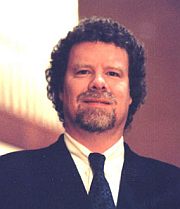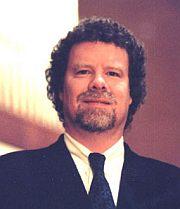While he was alive, Max Reger enjoyed considerable popularity as a composer of chamber and orchestral works, but since his untimely death in 1916, he has been sparsely represented in concert halls. Not so with his organ music. There has always been a small yet passionate group of Reger cheerleaders in the organ world, and David Hatt is one of them, as evidenced Sunday in his fine recital on the splendidly restored E.M. Skinner organ at Trinity Episcopal Church in San Francisco.

Known for his unapologetic, intellectually challenging programming, Hatt chose as the centerpiece of his recital Reger’s Introduction, Passacaglia, and Fugue in E minor, Op. 127. Interestingly, Hatt paired this piece with another Op. 127, Josef Rheinberger’s Sonata in F Minor, which opened the program. The Prelude is a somewhat chromatic foreshadowing of Reger’s own more-extreme harmonic techniques. Hatt maintained a well-paced, fluid, but rhythmic approach to this music, including some exquisite handling of transitions.
The Andante featured a B section with lots of intricate 16th-note passages, some of which were lost in Trinity’s resonant acoustics. The tempo in the final Fugue was exactly right and the buildup to fortissimo at the end was well-handled.
Sandwiched in between the two large Germanic works were two smaller American ones. First, the organist featured one of his own compositions, In the Beginning Was the Word, with help from tenor Kevin Baum, who sang beautifully. This distinctive piece was made up alternately of quick flourishes and long, sustained chords underlying a free-verse text. The lack of any counterpoint in the work brought it into sharp (and welcome) relief from the rest of the program.
Next came a charming Fugue à la Gigue by David N. Johnson, who is mostly known to organists as a composer of wedding music and trumpet tunes. It is, by far, a more substantial and difficult piece than these, being written in a harmonic “quartal” (based on fourths) style reminiscent of Hindemith, but with a New World twang. Hatt tossed this off with no difficulty.
Harmonic Wildness
But it was the Reger that people came to hear. Written in 1913, just at the point when the composer was starting to experiment with stylistic changes, the piece exhausts the gamut pretty much by the fifth of its no fewer than 44 pages (for example, the only indication of E minor in the Introduction is the first chord). Yet, Reger intentionally balances the harmonic wildness of the piece with a rather constrained form, the Passacaglia and Fugue.
This, plus the excessive length of the work, presents a problem for a performer: whether to bring out the overarching form of the piece or to hone in on the individual sections, in an effort to bring them more into focus. Hatt took the latter approach, exhibiting more patience and generosity of spirit than many contemporary Reger performers, who seem all too eager to turn it into a show of technical bravado. But in doing so, he tended to sacrifice a sense of forward momentum. This made it difficult, for instance, to get a sense of three-quarter time in the Passacaglia. Even so, listeners could clearly hear most of the chord changes and gain a better feeling of Reger’s pushing of the 19th-century harmonic envelope.
The other big issue in all of Reger’s organ works is how to manage the dynamics and the registration. Reger’s dynamic indications, which are often unfeasible if not unrealistic, can fluctuate wildly from triple piano to triple forte in the space of only a few measures. That said, Hatt could have done more with the dynamic changes.
He did, however, take advantage of the Skinner organ’s color possibilities. This instrument is one of the few in the area that has both the tonal brightness and clarity combined with the “weight” needed to ennoble Reger’s vision — a vision that is underappreciated by nonorganists and even some organists. David Hatt’s performance may not have changed any minds, but his motives as a Max Reger champion are definitely beyond reproach.

